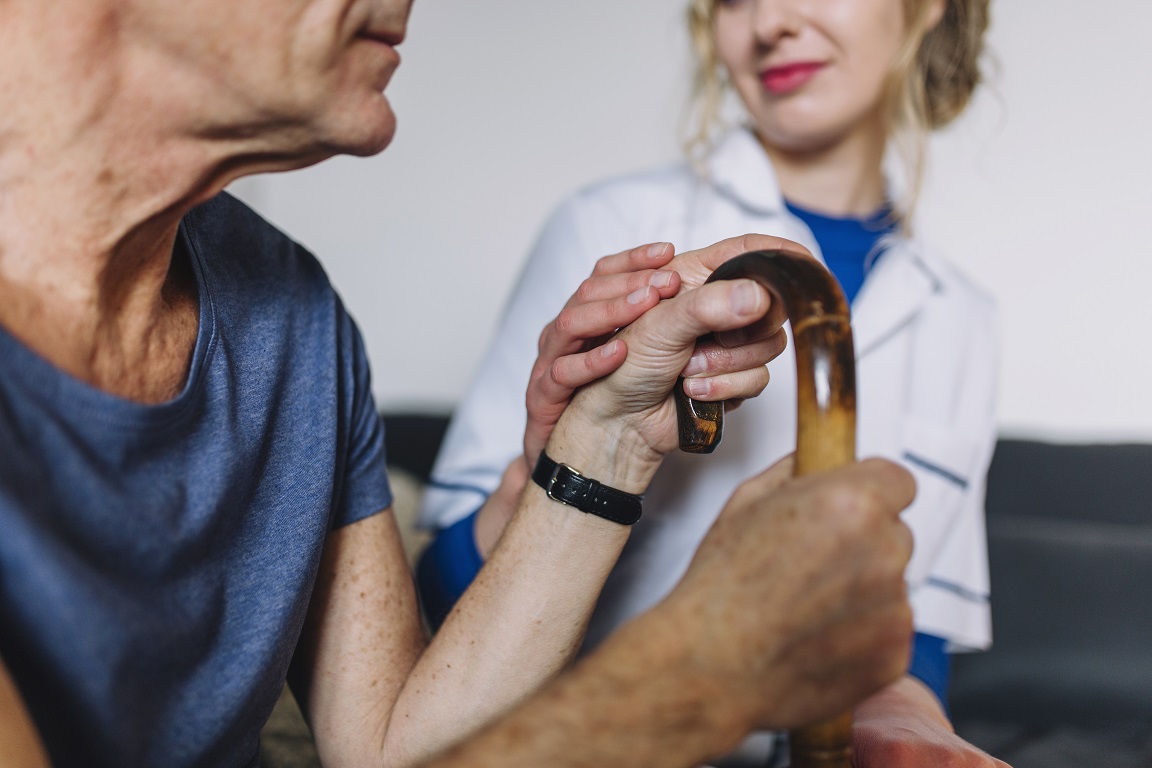for Expert Caregivers and Nursing Staff
In the realm of healthcare, few challenges are as pervasive as diabetes, a chronic condition that requires lifelong management. And for seniors, this challenge takes on a unique complexity due to the natural changes that come with aging. Welcome to our comprehensive guide on Diabetes Patient Care for Seniors , where we will explore every facet of managing diabetes in the golden years, focusing on the importance of Diabetes Patient Care to ensure a healthier and happier life.

As individuals grow older, the body’s metabolism undergoes changes, and sensitivity to insulin can decline. This makes seniors more susceptible to type 2 diabetes, which accounts for a majority of diabetes cases among older adults. Diabetes patient care for seniors involves a multidimensional approach that encompasses dietary modifications, physical activity, medication management, and emotional well-being.
A cornerstone of diabetes management is adopting a diabetes-friendly diet that helps regulate blood sugar levels. Seniors should focus on consuming whole grains, lean proteins, fiber-rich fruits and vegetables, and healthy fats. Reducing the intake of refined carbohydrates, sugary foods, and excessive salt can contribute to better blood sugar control. Consulting a registered dietitian can provide personalized guidance on creating a balanced meal plan that aligns with individual preferences and health needs.

Physical activity plays an instrumental role in diabetes patient care for seniors. Engaging in regular exercise can improve insulin sensitivity, aid in weight management, and enhance overall cardiovascular health. Low-impact exercises like walking, swimming, and gentle yoga can be particularly beneficial for older adults. Always consult a healthcare professional before starting a new exercise regimen to ensure safety and suitability.
Medication Management in Diabetes Patient Care
Seniors with diabetes often require medication to help manage blood sugar levels effectively. It’s essential to follow healthcare providers’ recommendations regarding medication dosage and timing. Medication management involves careful monitoring, adhering to prescribed schedules, and promptly addressing any adverse effects or concerns. Regular communication with healthcare professionals is vital to ensure optimal diabetes management Of Diabetes Patient Care.
Living with diabetes can bring about emotional challenges, especially for seniors. Coping with the diagnosis, managing daily routines, and facing potential complications can contribute to stress and anxiety. Prioritizing emotional well-being through relaxation techniques, mindfulness practices, and seeking support from friends, family, or mental health professionals can significantly improve overall quality of life.
Regular monitoring of blood sugar levels is fundamental to diabetes patient care. Seniors should work with their healthcare providers to establish a monitoring schedule that aligns with their specific needs. Self-monitoring using glucometers or continuous glucose monitoring systems can help seniors track their blood sugar trends and make informed decisions about diet, exercise, and medication adjustments.

Diabetes can lead to a range of complications, including neuropathy, retinopathy, cardiovascular disease, and kidney problems. Comprehensive diabetes patient care involves taking proactive measures to prevent these complications. Regular eye exams, foot care, blood pressure management, and maintaining a healthy weight are crucial in reducing the risk of diabetes-related complications.
Support from family, friends, and healthcare professionals plays a pivotal role in seniors’ diabetes patient care journey. Loved ones can encourage healthy habits, assist with medication management, and provide emotional support. Establishing an environment that fosters open communication and understanding helps seniors navigate the challenges of diabetes with confidence.
Seniors should actively engage with their healthcare providers to develop a tailored diabetes patient care plan. Regular check-ups, laboratory tests, and medication adjustments should be part of the routine. Seniors should voice their concerns, ask questions, and work together with healthcare professionals to ensure diabetes management aligns with their evolving health needs.
Seniors with diabetes need not relinquish their travel aspirations. Planning ahead is essential when traveling with diabetes. Packing adequate medications, supplies, and snacks, having a medical ID bracelet, and researching medical facilities at the travel destination can help seniors navigate their journey safely and comfortably.
The cost of managing diabetes can be significant, encompassing medications, medical appointments, and monitoring supplies. Seniors should explore insurance options, prescription assistance programs, and discounts on diabetes-related products to alleviate the financial burden and ensure consistent access to necessary resources.

Maintaining an active social life contributes to overall well-being, and seniors with diabetes should actively seek social interactions. Engaging in social activities, support groups, and community events not only combats isolation but also provides opportunities to share experiences and learn from others.
Adapting to life with diabetes requires resilience and a positive outlook. Seniors should develop coping strategies to address challenges, setbacks, and moments of frustration. These strategies can include practicing mindfulness, setting achievable goals, and cultivating a network of support.
Managing diabetes in the senior years necessitates a comprehensive and holistic approach. By integrating dietary modifications, regular physical activity, medication management, emotional well-being, and a supportive environment, seniors can lead fulfilling lives despite the challenges posed by diabetes. With proper diabetes patient care , seniors can look forward to a healthier and more vibrant future.
Yes, but moderation is key. Seniors should work with their healthcare providers to incorporate occasional treats into their meal plans.
Yes, with proper supervision and guidance, strength training can be beneficial for improving muscle mass and insulin sensitivity.
Joining local support groups, engaging in hobbies, and participating in community events can help combat isolation.
To arrange a consultation with MT Patient Care Services, visit their website or contact their customer service representatives. They will guide you through the process and address any questions or concerns you may have.
Yes, MT Patient Care Services understands that each individual has unique care requirements. They offer customizable services to adapt to specific needs, ensuring that seniors receive the support they need.